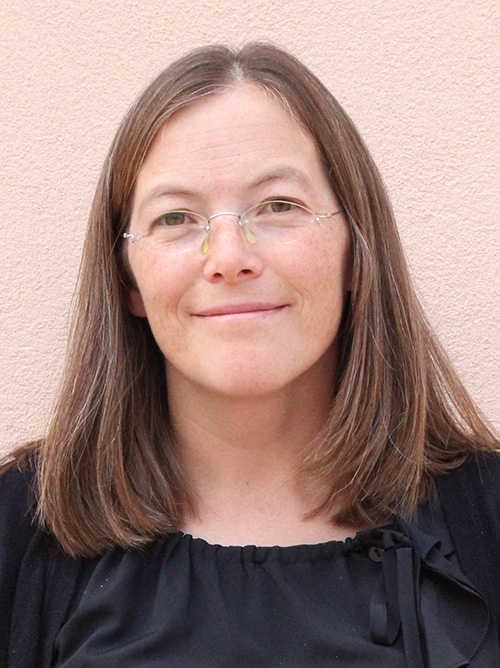Recent News
UNM Engineering team wins ASEE best paper for work on first-year engineering course
July 17, 2025
New director will enhance interdisciplinary engineering learning opportunities
July 2, 2025
Final SIRI cohort visits UNM campus
June 30, 2025
Perfetti receives ANS Landis Engineering Achievement Award
June 26, 2025
News Archives
Engineering professor leading one of five NSF BRITE Fellow projects
December 13, 2022 - by Kim Delker
Meeko Oishi, a professor in The University of New Mexico Department of Electrical and Computer Engineering, is leading a $1 million project on human-centered autonomous systems as part of the National Science Foundation (NSF) Boosting Research Ideas for Transformative and Equitable Advances in Engineering (BRITE) program.

As a BRITE Fellow, Oishi will be leading a single-principal investigator project titled Autonomous Systems that Accommodate Human Perception and Reasoning about Uncertainty. The project will involve the integration of knowledge of human perception and reasoning about uncertainty into new methods for the design and control of autonomous dynamical systems.
The five-year project begins May 1, 2023, and ends April 30, 2028. The NSF BRITE program is funded by NSF Division of Civil, Mechanical and Manufacturing Innovation (CMMI) in the NSF Engineering Directorate.
“The BRITE Fellow opportunity supports researchers who have a strong track record and a bold, unconventional vision that, if successful, could transform what’s possible and bring great benefits to the nation,” CMMI Division Director Robert Stone said. “NSF expects these BRITE Fellow projects to challenge established ideas, open new fields and create new paths through thorny problems.”
Oishi said her project will develop an algorithmic design and control framework for autonomous systems that successfully accommodates the inevitable unpredictability of human actions, as well as the effects on human decision-making of uncertainty in the dynamics and action of the system. A key element of this framework is its ability to capture typical needs of humans to design solutions from uncertain information, and under potentially conflicting constraints, which meet desired objectives to the greatest possible degree.
The research seeks to ensure a predictable level of safety in interactions between autonomous systems and humans in uncertain environments, with applications in aerospace, manufacturing, transportation and healthcare systems.
As part of the project, Oishi will also design a new course on human-centric autonomy, with involvement from Sandia National Laboratories, the Space Vehicles Directorate of the Air Force Research Laboratory, Verus Research, Mitsubishi Electric Research Labs and Google Research.
In 2019, Oishi was awarded a $5.5 million grant funded from NSF through the Cyber-Physical Systems (CPS) program to lead a project to examine and develop better ways for autonomous technology to interact with humans. “Cognitive Autonomy for Human CPS: Turning Novices into Experts” is in the middle of a five-year project to develop a framework for improving human-autonomous interactions and making them more responsive to human cognitive state.
NSF BRITE award research topics span all five clusters of CMMI: advanced manufacturing; dynamics, controls and cognition; engineering for civil infrastructure; mechanics of engineering materials and structures; and operations and design.
In addition to the Fellow awards, the NSF BRITE program is funding projects in three other tracks — supporting Pivot, Relaunch, and Synergy awards — for a total investment of more than $10 million in FY 2023.
